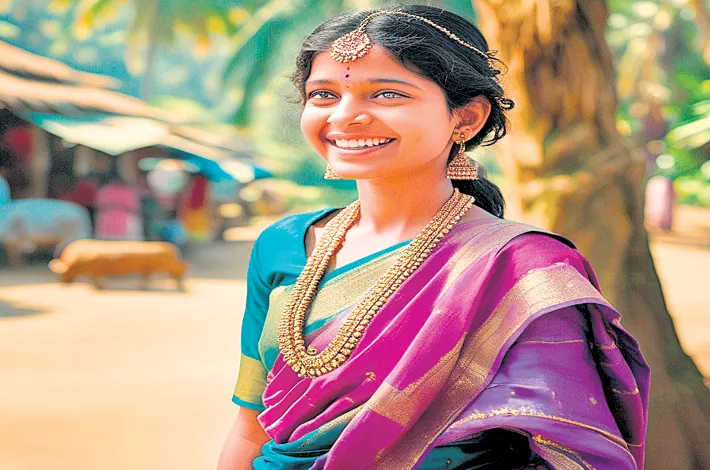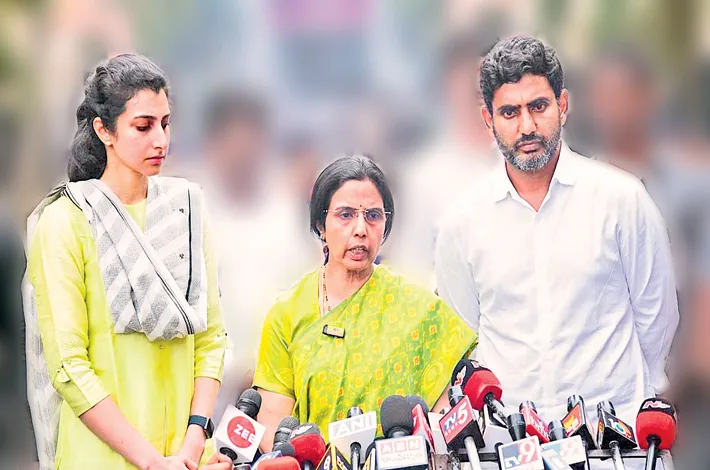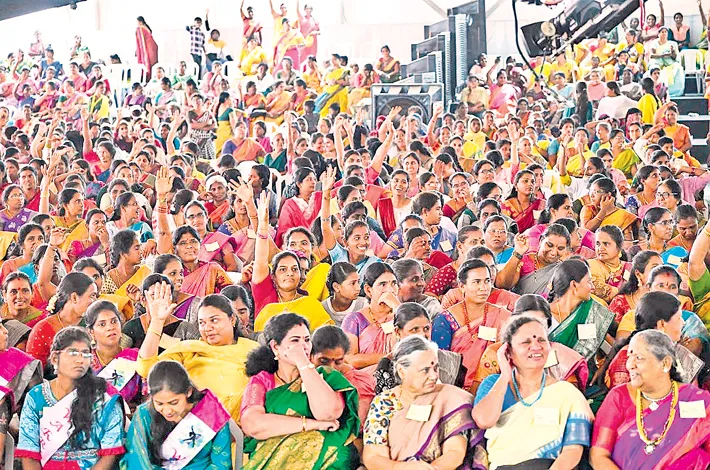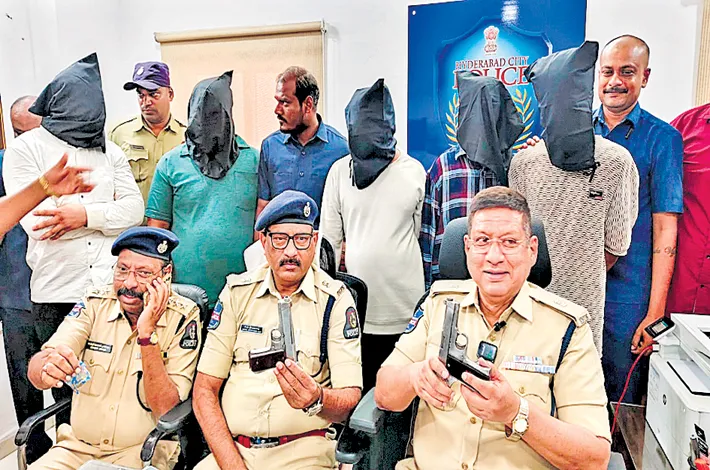The Magic Mango Tree
15-04-2025 12:00:00 AM

The next morning, she gathered her friends—Ravi, who loved telling jokes, and Meera, who could sing like a koel. “We’re going to save the village,” Anjali announced, showing them the magic mango. Ravi raised an eyebrow. “A mango? Anjali, have you been eating too many dosas?” Meera giggled but nodded. “Let’s try. What’s the harm?”
In a bustling village nestled between the emerald hills of Kerala, where coconut palms swayed and the air smelled of jasmine and spices, lived a girl named Anjali. She was ten years old, with bright eyes and a laugh that could make even the grumpiest buffalo smile. Anjali’s village, Pazhayangadi, was famous for its vibrant market, where vendors sold everything from golden turmeric to shimmering bangles. But what Anjali loved most was the ancient mango tree that stood at the edge of her family’s courtyard.
This wasn’t just any mango tree. It was enormous, its branches stretching like the arms of a giant, heavy with fruit that glowed like tiny suns. The villagers called it “Amma’s Tree,” believing it was blessed by the goddess Lakshmi herself. They said it granted wishes to those pure of heart, but only if they truly listened to its whispers. Anjali, however, had never heard it whisper. She’d spent hours sitting under its shade, munching on ripe mangoes, hoping for a sign, but the tree stayed silent.
One scorching summer, the village faced a terrible drought. The river that fed their fields shrank to a trickle, and the crops withered under the unrelenting sun. The market grew quiet, and worry creased the faces of everyone Anjali knew. Her father, a farmer, would sigh as he looked at their parched paddy fields. “If only the rains would come,” he’d mutter.
Anjali couldn’t bear seeing her village so sad. One evening, as the sky burned orange, she ran to Amma’s Tree and pressed her hands against its rough bark. “Please,” she whispered, “help us. Bring the rains.” She closed her eyes, waiting for a sign, but heard only the rustle of leaves. Disappointed, she turned to leave when a single mango fell at her feet with a soft thud. It was unlike any she’d seen—golden with streaks of silver, shimmering as if dusted with starlight.
Curious, Anjali picked it up. The moment she touched it, a warm breeze swirled around her, carrying a faint voice. “Plant my seed, child,” it said. “Care for it with love, and your village will bloom again.” Anjali’s heart raced. Was this the tree’s whisper? She looked at the mango, then at the tree, and made up her mind.
The next morning, she gathered her friends—Ravi, who loved telling jokes, and Meera, who could sing like a koel. “We’re going to save the village,” Anjali announced, showing them the magic mango. Ravi raised an eyebrow. “A mango? Anjali, have you been eating too many dosas?” Meera giggled but nodded. “Let’s try. What’s the harm?”
Together, they peeled the mango, savoring its sweet, juicy flesh, and carefully extracted the seed. They chose a spot near the riverbank, where the soil was still slightly damp. Anjali dug a small hole, her hands trembling with hope, and placed the seed inside. “Grow strong,” she whispered, covering it with earth. The three friends promised to tend to it every day, watering it with whatever they could spare from their homes.
Days passed, and the village grew drier. Anjali’s father shook his head when she told him about the seed. “It’s a kind thought, beti, but one seed won’t bring the rains.” Still, Anjali, Ravi, and Meera didn’t give up. They carried water in small pots, sang to the seed, and told it stories of the village’s happier days—of Onam festivals with flower carpets and boat races that echoed with laughter.
One dawn, as Anjali poured water over the soil, she gasped. A tiny green sprout had pushed through the earth, its leaves glistening like emeralds. “It’s working!” she cried, hugging Meera and Ravi. Word spread, and soon the whole village gathered around the sprout. Even the elders, who’d scoffed at the children’s plan, murmured in awe.
As the days went on, the sprout grew into a sapling, then a small tree. Strangely, the river began to swell, its waters sparkling under the sun. Clouds gathered in the sky, heavy and gray, and one evening, as Anjali danced around the tree with her friends, the first raindrops fell. They were soft at first, then grew into a joyous downpour. The village erupted in cheers, children splashing in puddles, adults lifting their faces to the sky.
By the next monsoon, the tree had grown tall, its branches laden with mangoes that shimmered like the first one Anjali had found. The fields were green again, and the market buzzed with life. The villagers called it “Anjali’s Tree,” though Anjali insisted it belonged to everyone. “It grew because we all believed,” she said, smiling.
Years later, when Anjali was grown, she’d sit under the tree with the village children, telling them the story of the magic mango. “Listen to the world around you,” she’d say, “and never stop hoping.” And sometimes, when the wind was just right, the tree would rustle, as if whispering its agreement.








